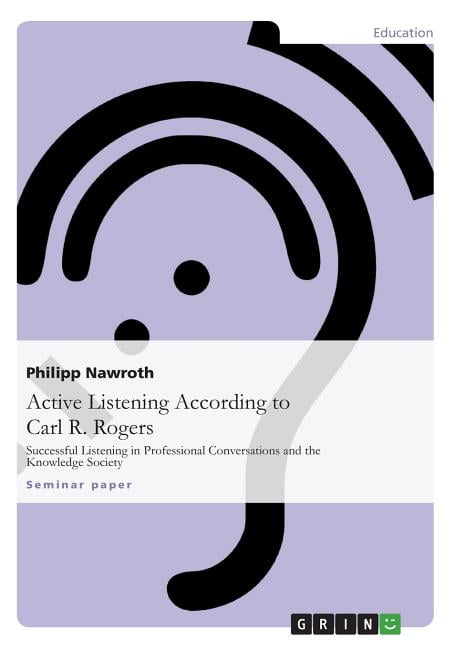

By practicing active listening, you will find that the people you communicate with will listen to you more as well.Choose those situations when you need to understand precisely what someone has to say, e.g. You cannot use active listening all the time.Active listening tends to open people up, to get them to say more.Active listening forces people to listen attentively to others.The heart of good communication is not the process of talking, but that of listening.Contrary to popular misconceptions, reflection is not a verbatim repetition of the speaker’s words, but a reflecting on what you think the person is saying and feeling. We do this by reflecting (repeating back) in our own words what we think the speaker means by their words and behaviour. As active listening is harder than it at first appears, we should test that we have understood the speaker correctly. Reflect back what you think the speaker means.It is the total package of behaviour that helps the person convey their message, and we need to be alert to all of these. Not all communication is verbal and for active listening we need to look for hesitations, pauses, inflection, tone, volume, facial expression, body posture, hand & eye movements and breathing. The active listener must listen carefully to try to analyse the ‘total’ meaning of what the speaker is saying. Sometimes the feelings underlying a message are more important that the content. We need to listen for both meaning and feeling if we want to listen effectively. Any message has two components, the content of the message and the underlying feelings. The process of active listening can be explained in four simple steps.


Communication can be significantly improved if we learn to listen effectually and that good listening is ‘contagious’. It is about seeing things from the speaker’s point of view (POV). The process is described as “ getting inside the speaker”. In fact, Rogers even changed the name of the process at different times from ‘reflective listening’, to ‘active listening’ to ‘empathetic listening’. We should first note that Rogerian listening is a complex practice that was repeatedly revised over the course of Rogers’ career (see: Arnold, 2014). Few authors and trainers have read Rogers’ original writings on the subject, nor analysed carefully Rogers’ thinking. Rogers was the founder of the ‘client-centred’ approach to psychotherapy.Īlthough active listening is considered a fundamental communication skill, it is widely misunderstood. The influential Psychologist Carl Rogers (1902–1987) is the source of the ideas of active listening. One way of improving listening skills is the technique of ‘active listening’. Even though most experts agree that listening is a skill, it seems we don’t feel it is a skill we need to develop. However, while we spend many years in school learning to read, write and speak, we spend almost no time learning to listen.

The International Journal of Listening, 28, 13–31.Listening is vital to communication. The relative effectiveness of active listening in initial interactions. The reality game: A guide to humanistic counseling and psychotherapy (2nd ed.). Freedom to learn: A view of what education might become (Vol. Motivational interviewing: Helping people change (3rd ed.). Active listening and counselor self-efficacy: Emphasis on one microskill in beginning counselor training.
#CARL ROGERS REFLECTIVE LISTENING PROFESSIONAL#
Professional Psychology: Research and Practice, 16, 605–610. Ten principles for doing effective couples therapy. Clinical supervision of counselors in training A nationwide survey of ideal delivery, goals, and theoretical influences Counselor Education and Supervision, 26, 144–158. On active listening in person-centered, solution-focused psychotherapy. The Counseling Psychologist, 18, 355–412.įitzgerald, P., & Leudar, I. Systematic training of graduate-level counselors: Narrative and meta-analytic reviews of three major programs.


 0 kommentar(er)
0 kommentar(er)
